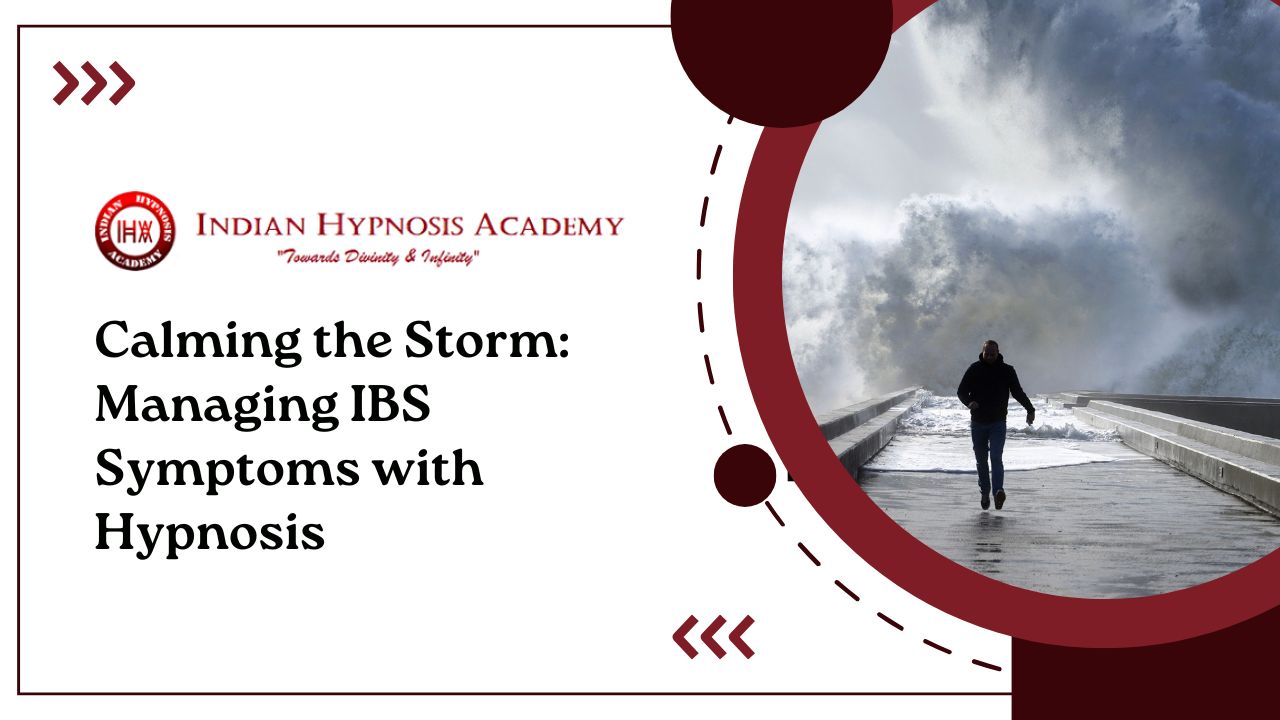Imagine living each day with a storm brewing in your gut. For millions of people, this is the reality of Irritable Bowel Syndrome (IBS). The unpredictable symptoms can turn even the simplest outings into a source of anxiety and discomfort. But what if there was a way to calm that internal chaos? Enter hypnosis—a tool often overlooked in managing IBS symptoms. This powerful technique taps into the mind-body connection, offering hope and relief for those seeking control over their digestive health. Join us as we explore how hypnosis could be your ally on the journey to soothing your symptoms and reclaiming your life.
Understanding IBS and its Symptoms
Irritable Bowel Syndrome, or IBS, is a chronic condition that affects the large intestine. It’s characterized by a range of uncomfortable symptoms that can vary from person to person.
Common signs include abdominal pain, bloating, gas, diarrhea, and constipation. Some people may experience one predominant symptom, while others might fluctuate between them.
IBS doesn’t have a known cause; however, factors like stress and diet often play significant roles in triggering flare-ups. The unpredictability of these episodes can lead to heightened anxiety for those affected.
Lifestyle changes and dietary adjustments are commonly recommended treatments but may not be enough for everyone. Understanding your body’s unique responses is crucial in managing this syndrome effectively. This awareness opens doors to various coping strategies that go beyond conventional methods.
The Connection Between Mind and Body in Managing IBS
The mind and body share a profound connection, especially when it comes to managing conditions like IBS. Stress and anxiety often trigger or exacerbate gut symptoms. This interplay can create a cycle of discomfort that feels hard to break.
Many people may not realize how their mental state influences physical health. When the brain perceives stress, it sends signals that impact digestion. This is why relaxation techniques are gaining traction among IBS patients.
Mindfulness practices encourage awareness of bodily sensations without judgment. They help individuals recognize triggers before they spiral into full-blown episodes.
Understanding this connection empowers patients to take an active role in their management strategies. By addressing both psychological and physical aspects, there’s potential for significant improvement in overall well-being.
What is Hypnosis?
Hypnosis is often misunderstood. It’s not magic or mind control, but a state of focused attention and heightened suggestibility.
During hypnosis, an individual enters a trance-like state. This allows them to become more receptive to suggestions while remaining aware of their surroundings.
The process typically involves relaxation techniques and guided imagery. A trained hypnotherapist helps clients tap into their subconscious minds.
This unique mental state can lead to increased awareness and transformation. Many use it for various purposes, including stress reduction and pain management.
While some may fear losing control, participants remain in charge throughout the experience. Hypnosis can be a powerful tool when used correctly, especially for managing conditions like IBS.
How Hypnosis Can Help Alleviate IBS Symptoms
Hypnosis offers a unique approach to managing IBS symptoms. By tapping into the subconscious mind, it seeks to alleviate stress and anxiety, often significant triggers for those with IBS.
During sessions, individuals learn relaxation techniques that can reduce tension in the gut. This relaxation can lead to less discomfort and fewer flare-ups.
Guided imagery is also utilized in hypnosis, allowing patients to visualize calming scenes. This mental escape provides relief from the daily challenges of living with IBS.
Moreover, hypnosis helps improve emotional regulation. When individuals feel more in control of their emotions, they may notice a decrease in gastrointestinal distress.
Some studies suggest that regular sessions can enhance overall quality of life for those affected by IBS. It’s not just about symptom management; it’s about regaining confidence and comfort in everyday activities as well.
Success Stories from Individuals with IBS who Used Hypnosis
Many individuals battling IBS have found relief through hypnosis. Their stories highlight a journey from discomfort to empowerment.
One woman shared how, after years of struggling with debilitating cramps, she turned to hypnotherapy. After just a few sessions, she noticed significant reductions in her symptoms. It was as if a heavy weight had lifted.
Another man described his experience as transformative. He attended group sessions where he learned relaxation techniques that calmed not only his gut but also his mind. The fear and anxiety surrounding food diminished greatly for him.
A college student reported being able to enjoy social gatherings without the constant worry about potential flare-ups. Hypnosis equipped her with tools to manage stress effectively, leading to a more fulfilling university life.
These success stories illustrate the profound impact of hypnosis on those seeking peace from IBS symptoms. Each individual’s path offers hope and inspiration for others facing similar challenges.
Other Alternative Treatments for IBS
Managing IBS often requires a multi-faceted approach. Many turn to alternative treatments for relief alongside traditional therapies.
Dietary changes are common. Low-FODMAP diets can significantly reduce symptoms by minimizing fermentable carbohydrates that trigger discomfort. Keeping a food diary might help identify personal triggers.
Acupuncture is another option worth exploring. This ancient practice may alleviate stress and tension, contributing to symptom relief for some individuals.
Probiotics have gained popularity too. These beneficial bacteria can enhance gut health and improve digestion, potentially easing IBS symptoms over time.
Mindfulness and yoga promote relaxation and mental clarity, which could positively impact gut function as well.
Herbal remedies like peppermint oil or ginger tea offer soothing properties that might assist with cramping or bloating. Always consult a healthcare professional before starting any new treatment plan to ensure safety and effectiveness tailored to your needs.
Tips for Finding a Certified Hypnotherapist for IBS Management
Finding a certified hypnotherapist can feel overwhelming, but taking the right steps can simplify the process. Start by looking for professionals who specialize in IBS or digestive disorders. Their expertise will ensure you receive tailored care.
Check their credentials and certifications as well. This information is often available on their websites or through professional organizations. A qualified therapist should have training in both hypnosis and related medical fields.
Don’t hesitate to request an initial consultation. This allows you to gauge compatibility and discuss your specific symptoms openly.
Reading reviews from previous clients can provide insight into their experiences too. Positive feedback might indicate effective treatment methods that resonate with others.
Trust your instincts during this journey. Your comfort level with a practitioner is paramount when it comes to managing IBS effectively through hypnosis.
Conclusion
Managing IBS can often feel like navigating a stormy sea. The symptoms—pain, bloating, and unpredictability—can disrupt daily life in significant ways. However, exploring alternative approaches such as hypnosis offers hope for many individuals seeking relief.
As we’ve seen, the mind-body connection plays a crucial role in managing these symptoms. Hypnosis stands out as an effective tool that utilizes this connection to help ease discomfort and improve overall well-being. With success stories from people who have turned to hypnosis for support, it’s clear that this method can provide valuable benefits.
For those considering hypnosis or other alternative treatments for IBS, finding the right practitioner is essential. A certified hypnotherapist with experience in gastrointestinal issues can guide you on your journey toward symptom management.
Embracing holistic methods may be just what you need to calm the storm within your digestive system and regain control of your life. Whether it’s through hypnosis or other complementary therapies, there are pathways available that offer comfort and relief from IBS symptoms. It’s all about finding what works best for you on this personal journey towards better health.




